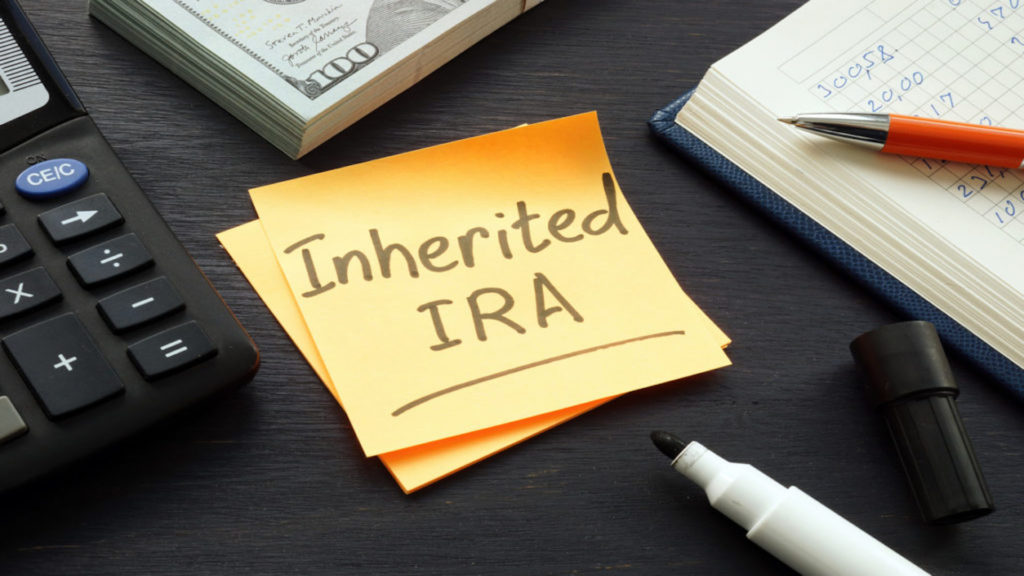Many people don’t realize how much the landscape shifted with the SECURE Act of 2019 — and more recently, with follow-on regulatory guidance — for those who inherit IRAs. The changes have major consequences for estate planning, tax strategy, and how beneficiaries should approach distributions.
The SECURE Act’s Blow to the “Stretch IRA”
Before 2020, beneficiaries (spouse or non-spouse) often had the option to “stretch” IRA distributions across their lifetime, spreading tax liability and allowing continued tax-deferred growth.
With the passage of the SECURE Act on Dec. 20, 2019, that flexibility was dramatically curtailed for most non-spouse heirs. Dan Evans, a CERTIFIED FINANCIAL PLANNER and financial advisor at MPPL Financial explains, “Now, for IRAs and many defined contribution accounts inherited from owners dying in 2020 or later, non-spouse beneficiaries generally must fully distribute the account within 10 years of the owner’s death. This rule also applies if the account is a Roth IRA, which means earnings themselves won’t be taxed, but the 10-year rule still applies.”
This change effectively ended the traditional stretch IRA strategy for most new beneficiaries.
Who Still Gets Stretch-Like Treatment? (Eligible Designated Beneficiaries)
Fortunately, the SECURE regime did not eliminate all protections. A narrow class of heirs, called Eligible Designated Beneficiaries (EDBs), retain more favorable options, which may resemble stretch-like treatment. These include:
- A surviving spouse
- A minor child of the original account owner (but once the child reaches the age of majority, the 10-year rule kicks in)
- A disabled or chronically ill beneficiary
- An individual who is not more than 10 years younger than the IRA owner
These EDBs may, in certain scenarios, take distributions over a life expectancy or in other more flexible ways, depending on whether the owner had already begun RMDs (Required Minimum Distributions). Always verify with your tax or financial advisor whether a beneficiary qualifies under these rules.
What’s Changing in 2025: Annual RMDs Begin
One of the biggest shifts arriving in 2025 is the end of the “grace period” that allowed some beneficiaries to avoid annual withdrawals during the 10-year window. Under final regulations, many non-spouse beneficiaries will be required to take annual RMDs during years 1 through 9 if the original account owner died on or after their required beginning date (RBD). In year 10, the full remaining balance must be distributed.
“That means you can no longer simply wait until year 10 and pull it all out in one lump,” says Evans. “In fact, in many cases, you’ll need to make a calculated withdrawal each year.”
It’s worth noting that for accounts inherited from owners who passed away before their RBD, the new rules allow more flexibility: no required annual RMDs. Instead there’s a requirement to empty the account by the end of year 10.
Additionally, for those non-spouse beneficiaries who inherited between 2020 and 2024, some relief from penalties was granted during the transition period, but that relief is ending. In other words, missed RMDs from inherited IRAs will begin to carry penalties again under the new regime.
Tax Implications: Faster Income, Higher Brackets
“If you inherit a traditional IRA post-2019, the compression from a lifetime spread to a 10-year window can push you into higher tax brackets,” says Evans. “Distributions will be taxed as ordinary income in the year you take them, so timing and amount matter greatly.”
“Because of the annual withdrawal requirement now in force for many heirs, the pressure is on to plan distributions carefully. You don’t want to wind up paying more tax than necessary or triggering unexpected bracket creep”, Evans says.
Estate Planning Strategies: What IRA Owners and Heirs Can Consider
If you own a traditional IRA (or employer plan) and plan to leave it to non-spouse heirs, Evans suggests exploring the following strategies (with your financial and tax advisors):
- Roth conversions: By converting part or all of a traditional IRA to a Roth before death can shift the tax burden away from heirs, since Roth distributions (if qualified) are tax-free.
- Charitable distributions: Using qualified charitable distributions or charitable trusts to reduce the taxable burden passing to heirs.
- Beneficiary structuring: Examine your beneficiary designations carefully. Naming or reworking trusts and understanding how they classify (eligible or non-eligible beneficiaries) is critical.
- Staggered withdrawal planning: For heirs subject to annual RMDs, plan a schedule of distributions that smooths tax impact over years.
“Because each situation is unique, depending on IRA size, the heirs’ income levels, life expectancies, and other assets, there’s no one-size-fits-all,” says Evans.
Bottom Line: Inherited IRAs Demand Attention Now
Inherited IRAs are no longer passive assets heirs can defer indefinitely. With the 10-year rule firmly in place and annual RMDs now required in many cases, both IRA owners and beneficiaries must pay close attention.
If you’ve inherited a retirement account, or hold one with the intent to pass it on, this is not a time for “set it and forget it.” Work with a trusted advisor (tax, financial, and estate) to ensure the strategy is aligned with your goals, that you meet your withdrawal obligations, and that you minimize tax leakage across generations.
